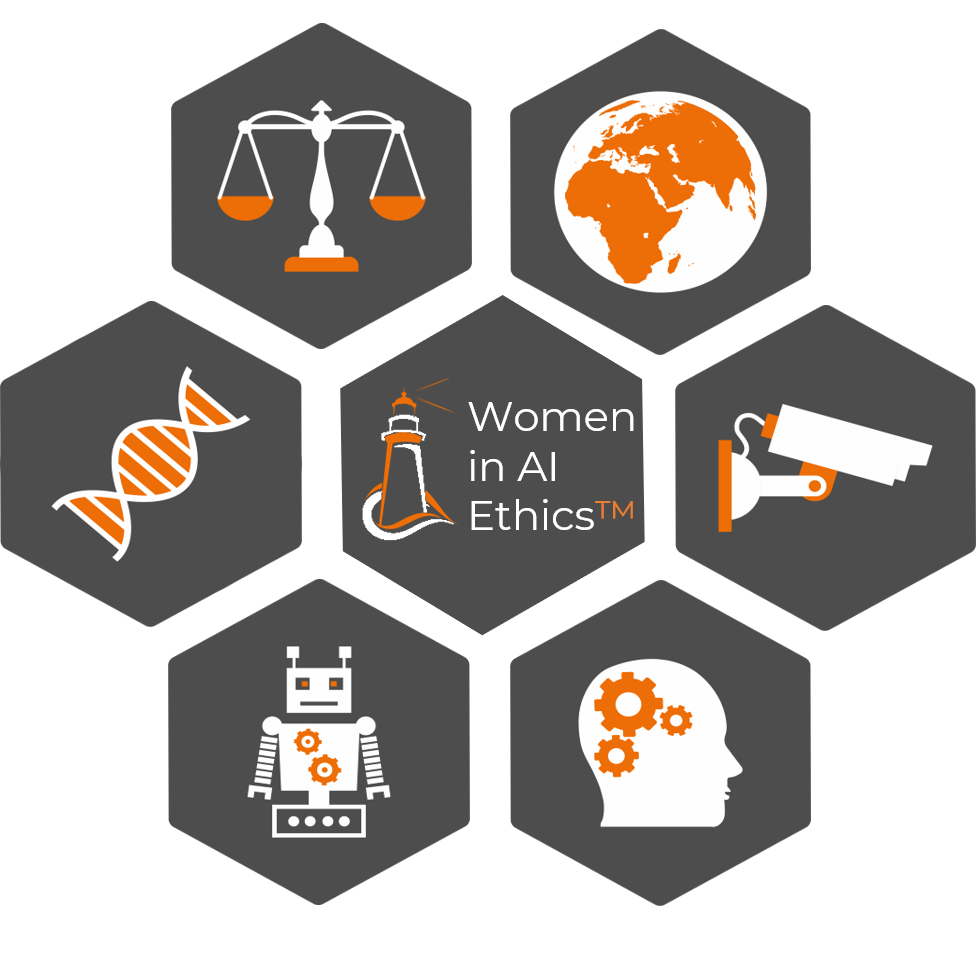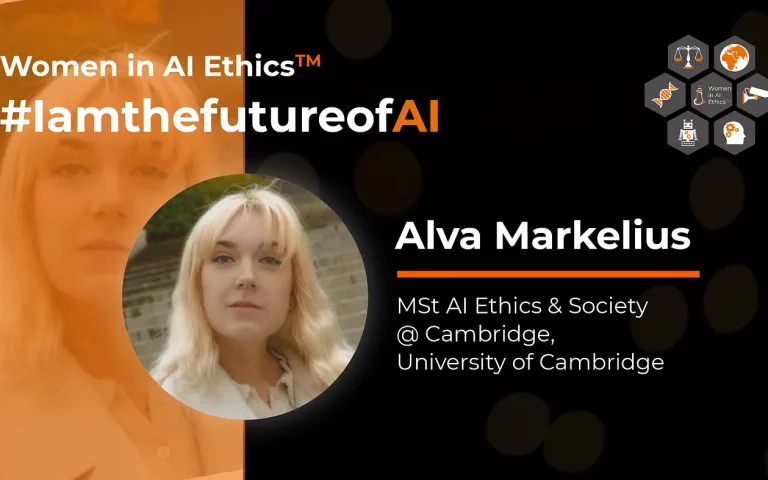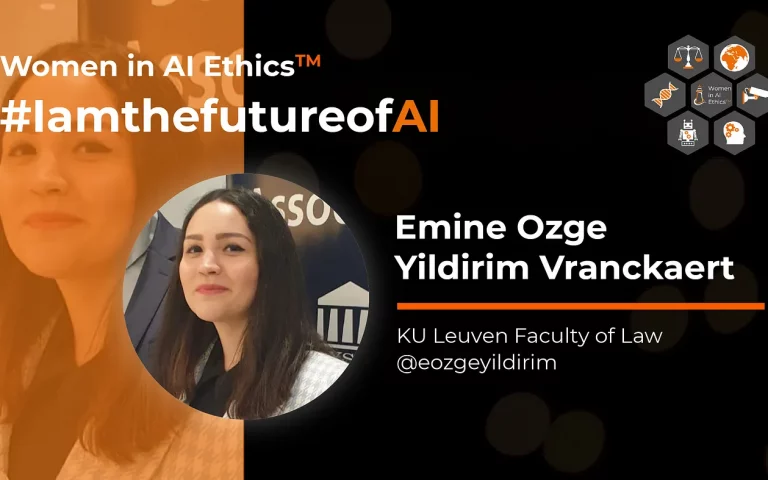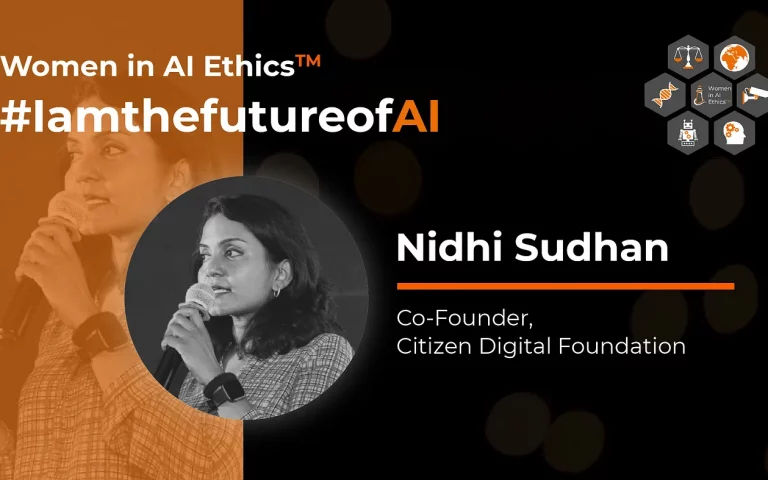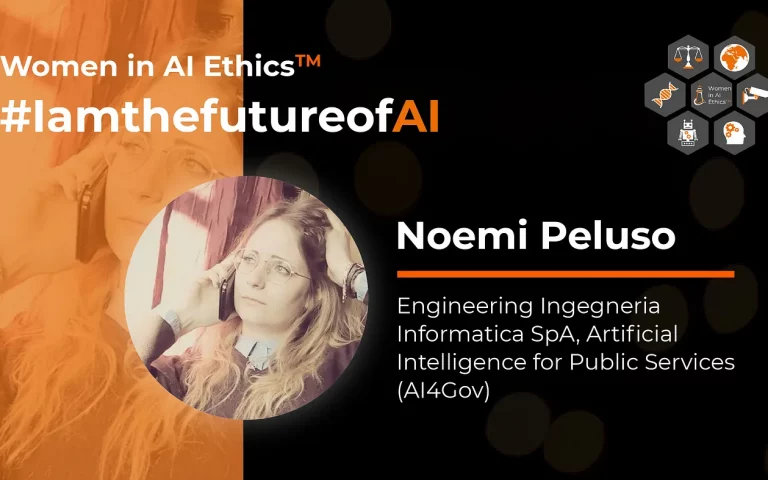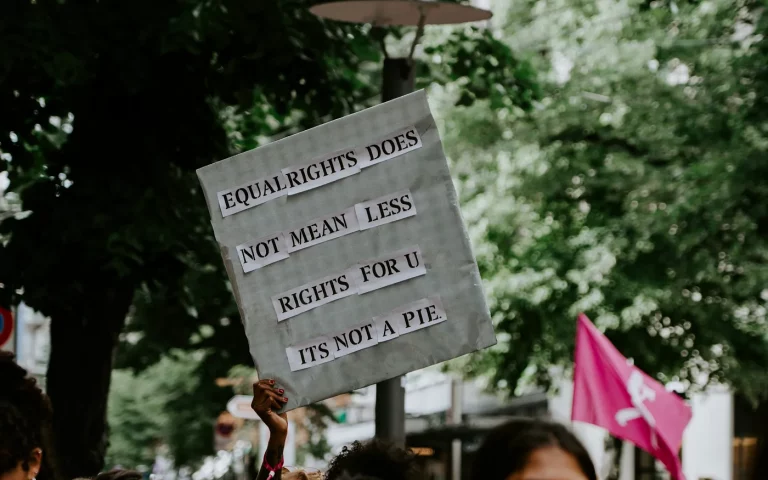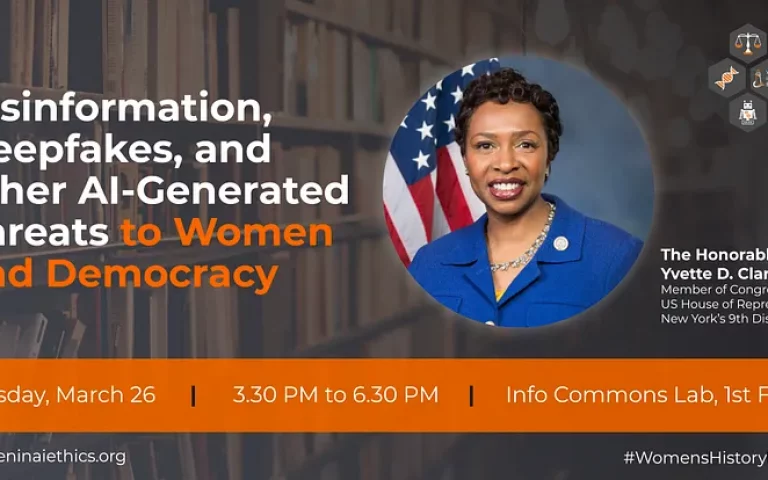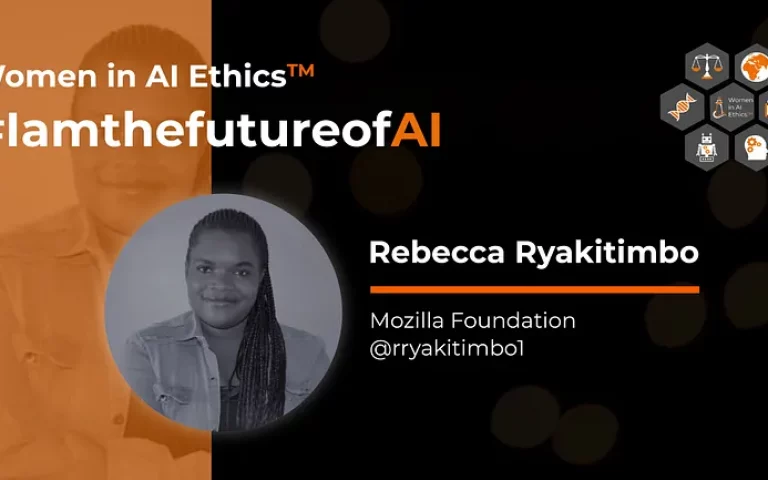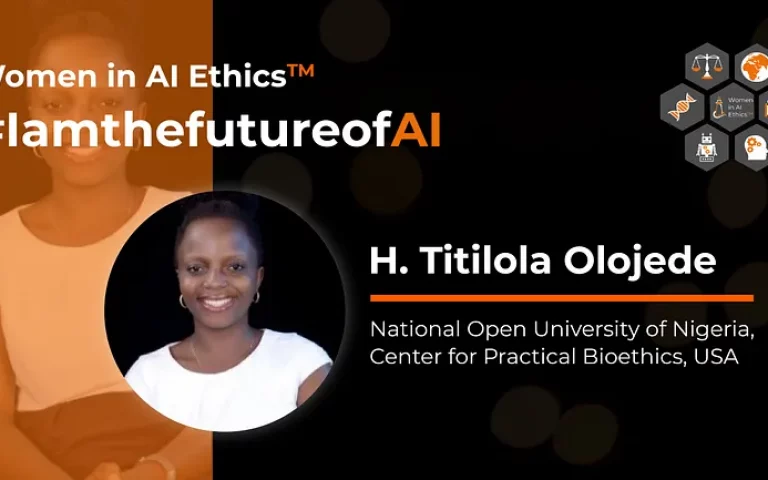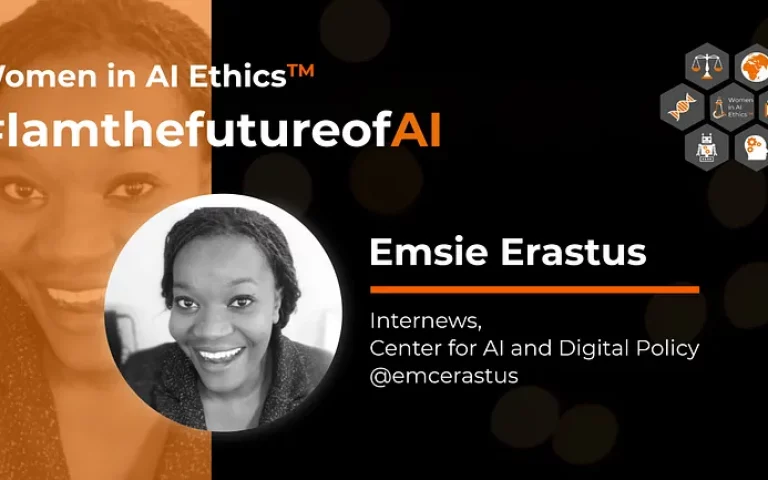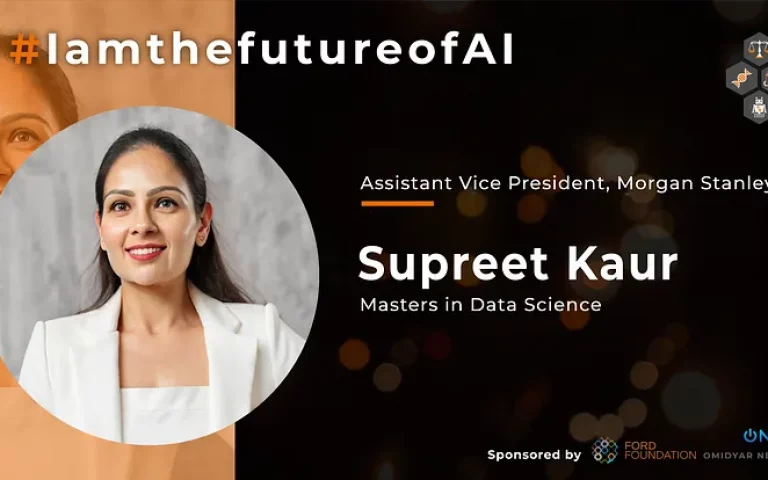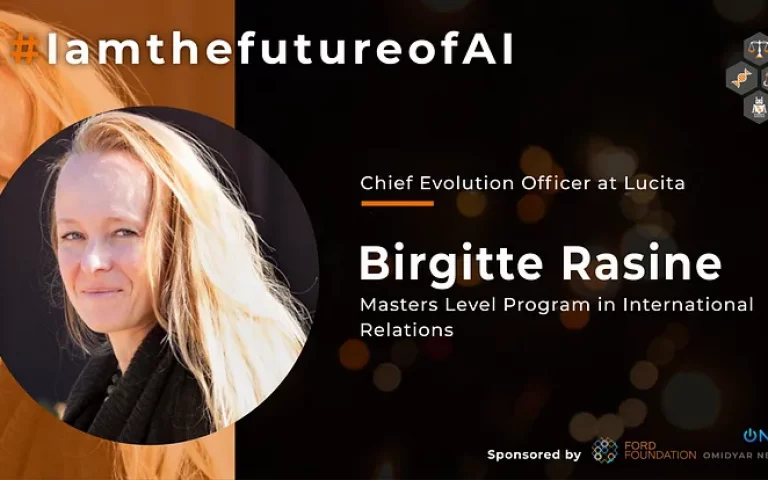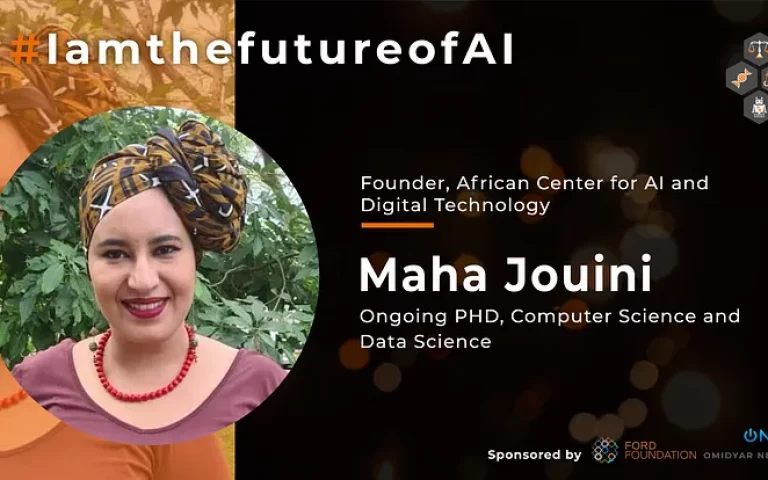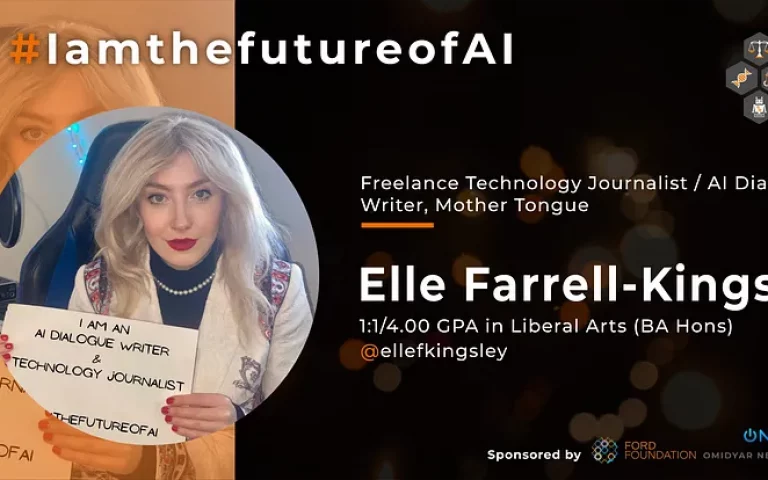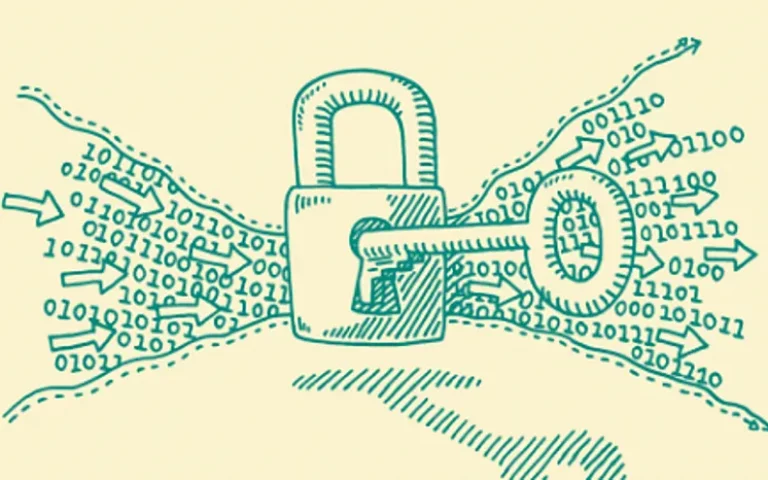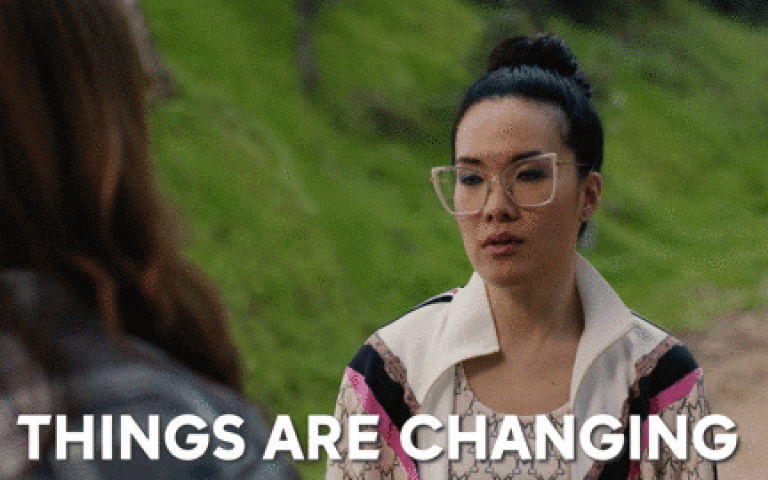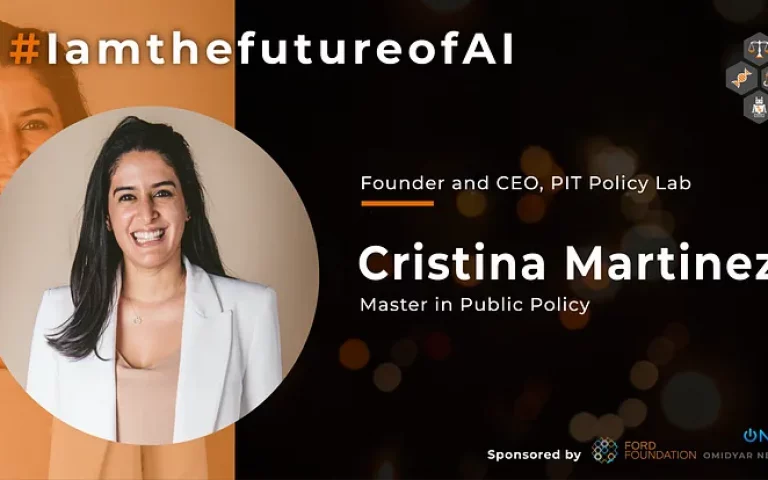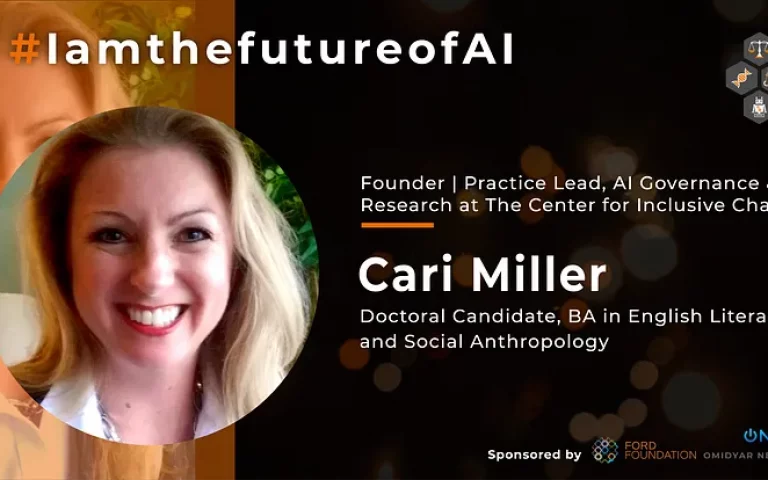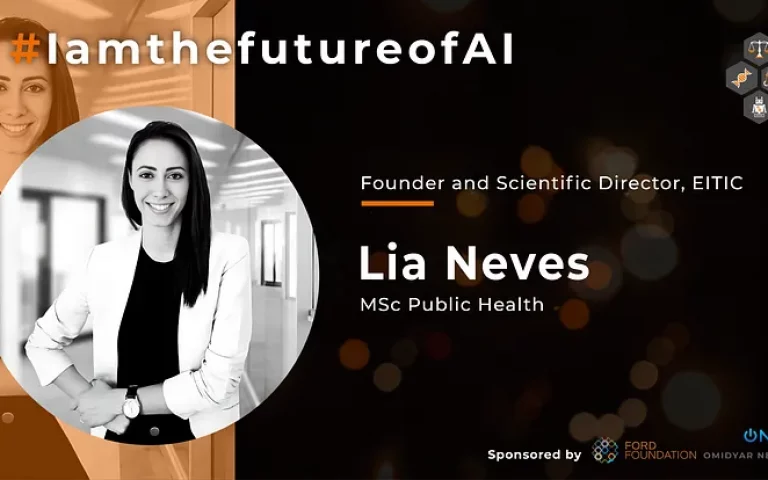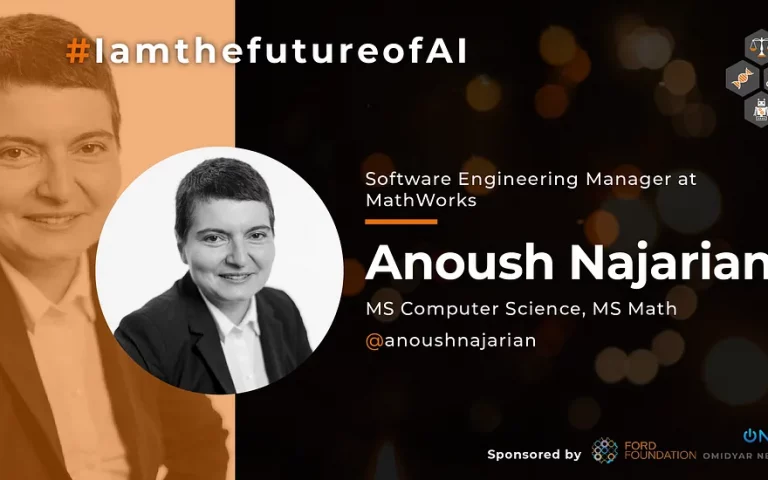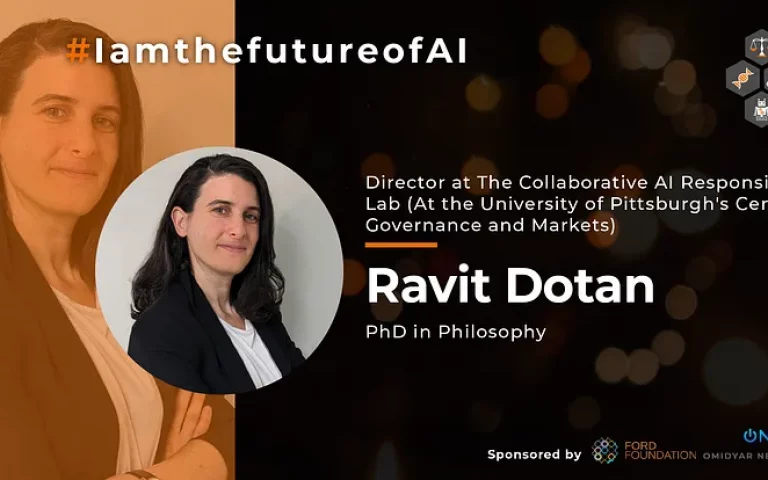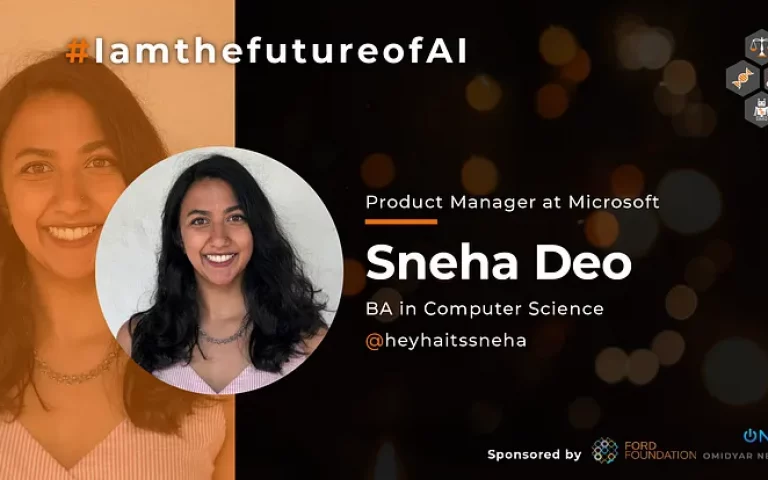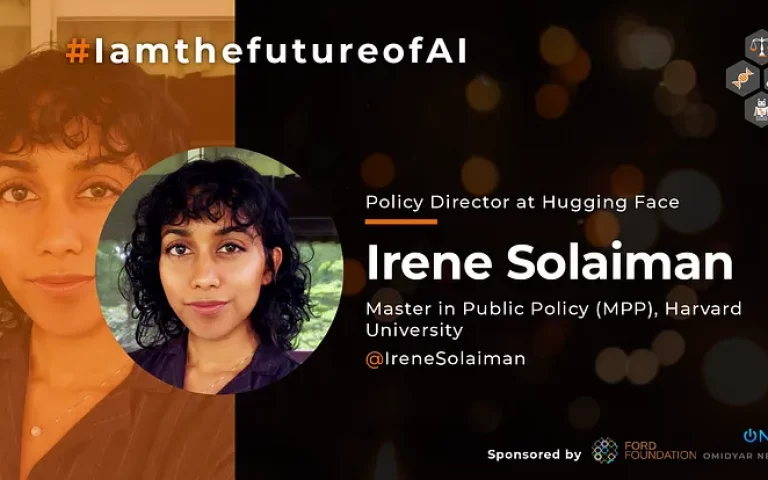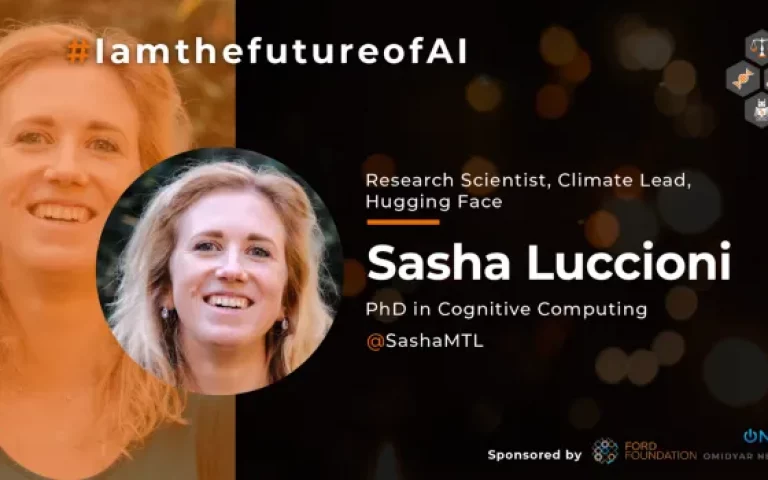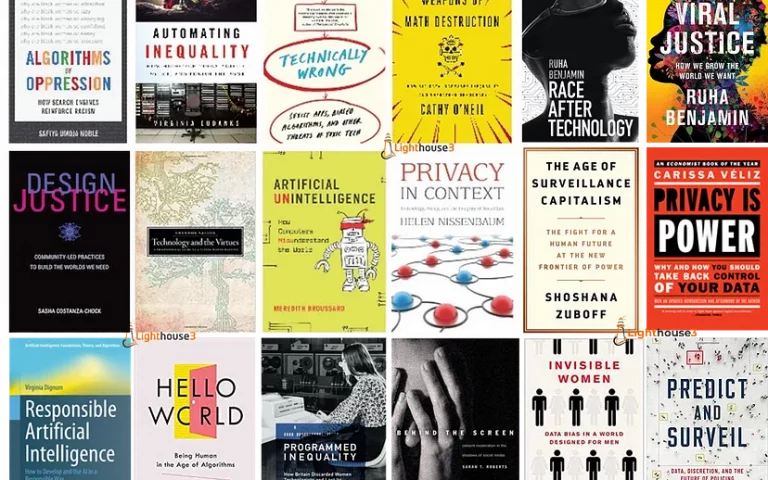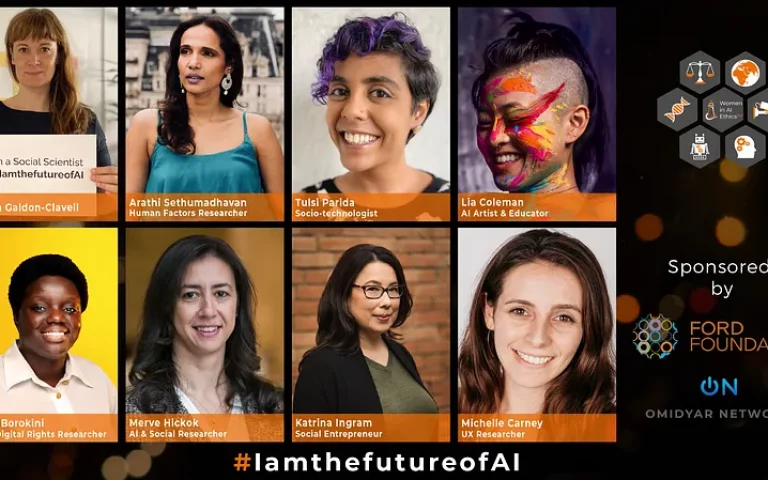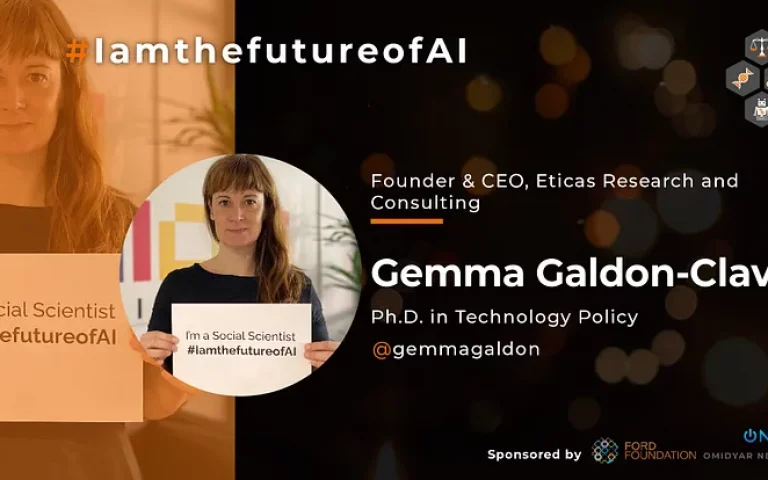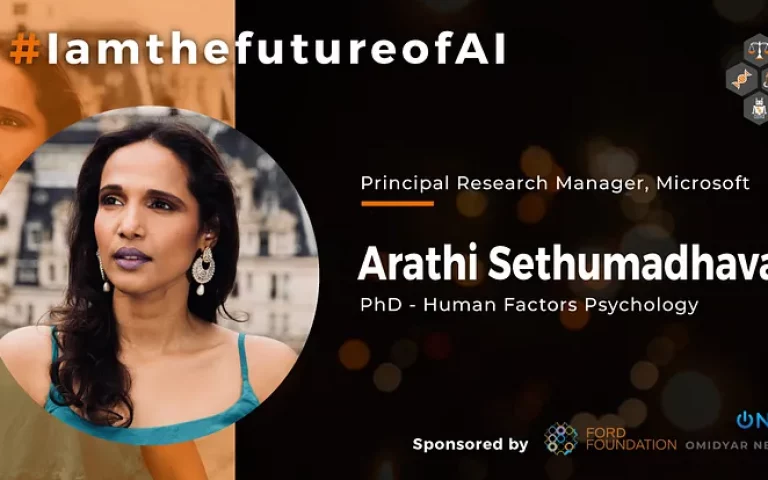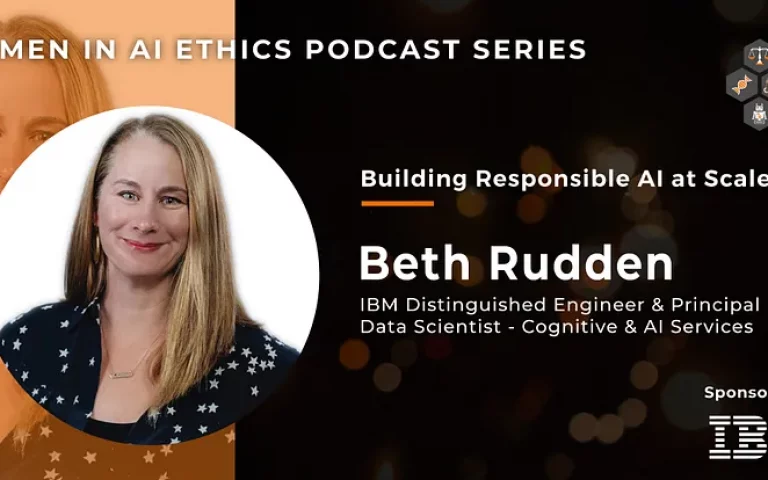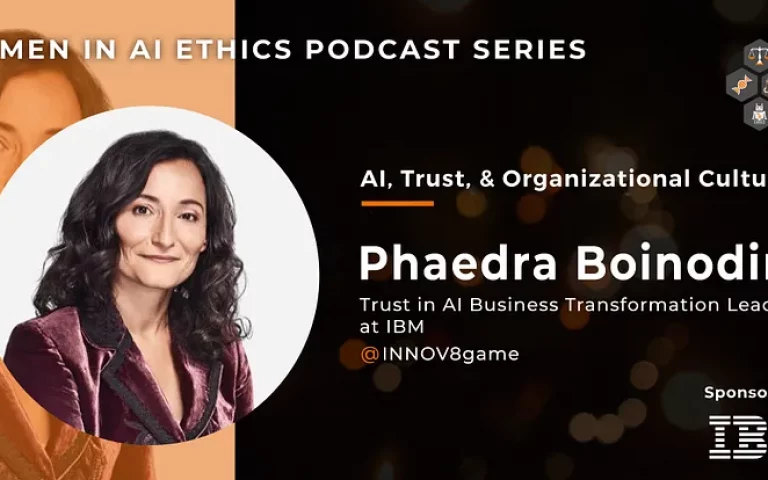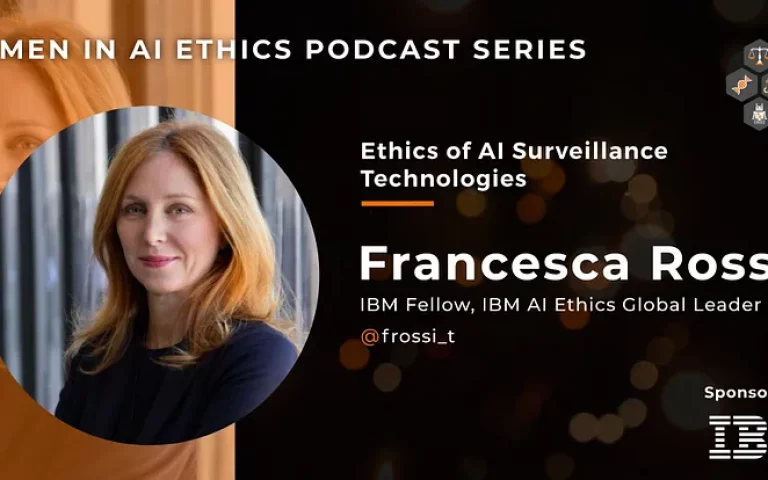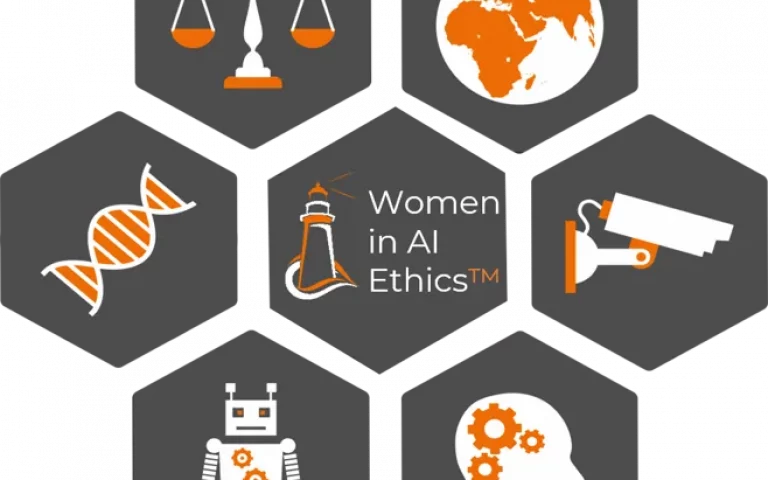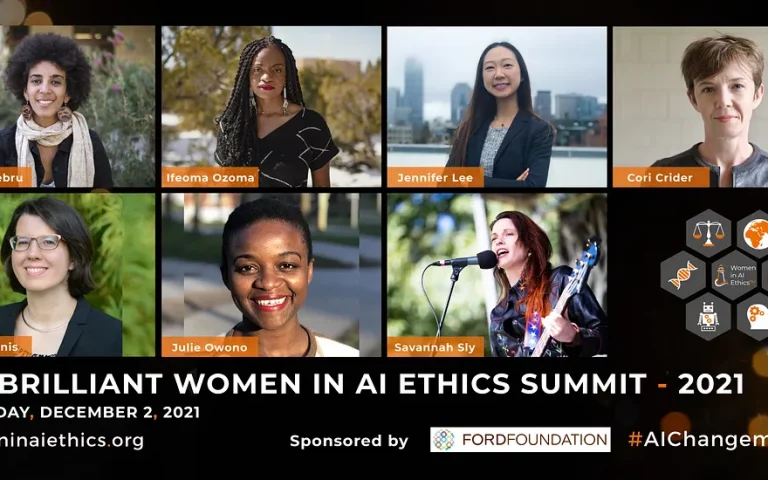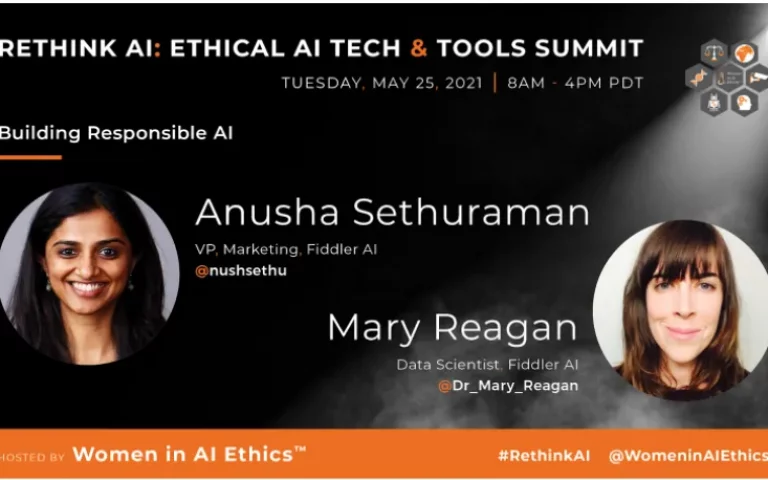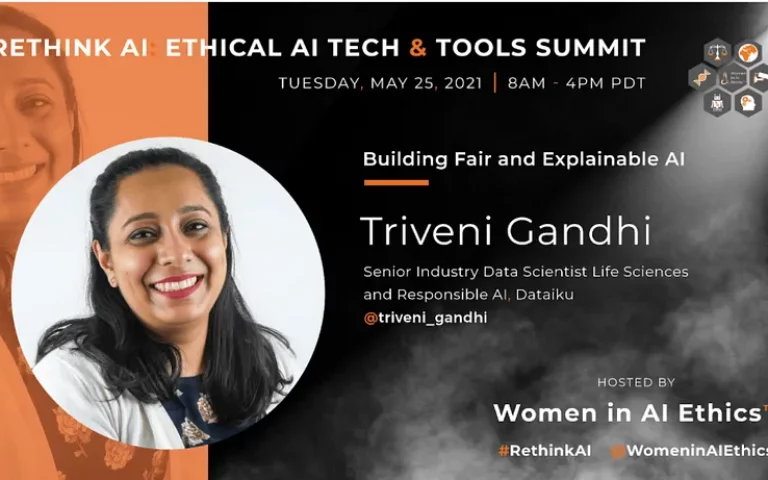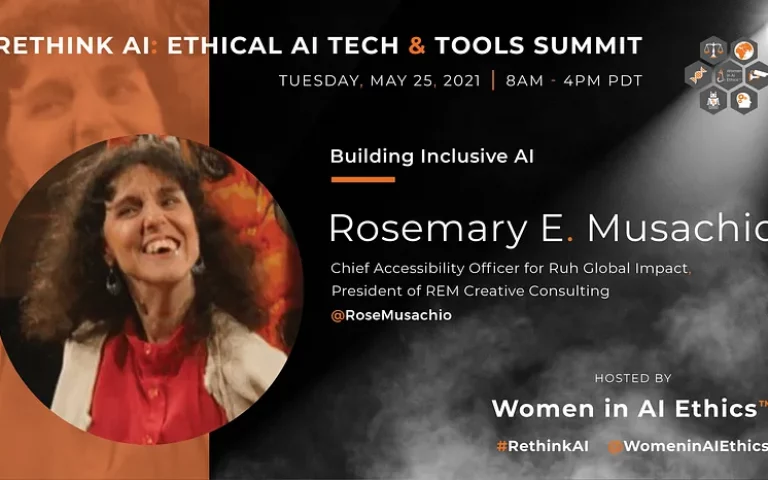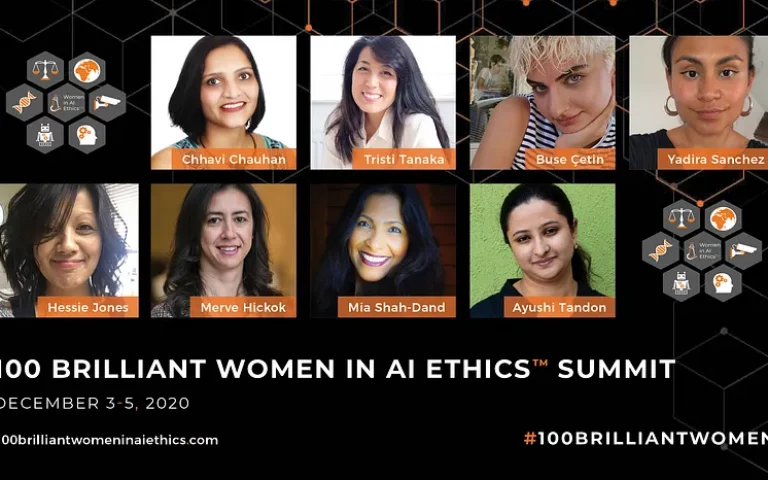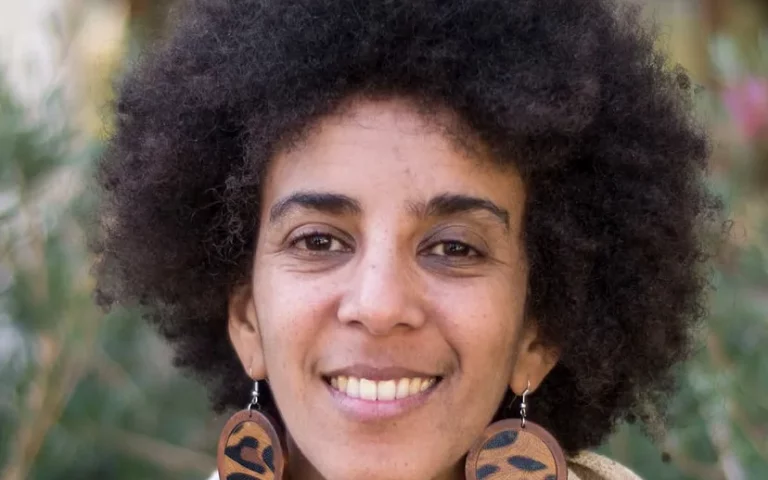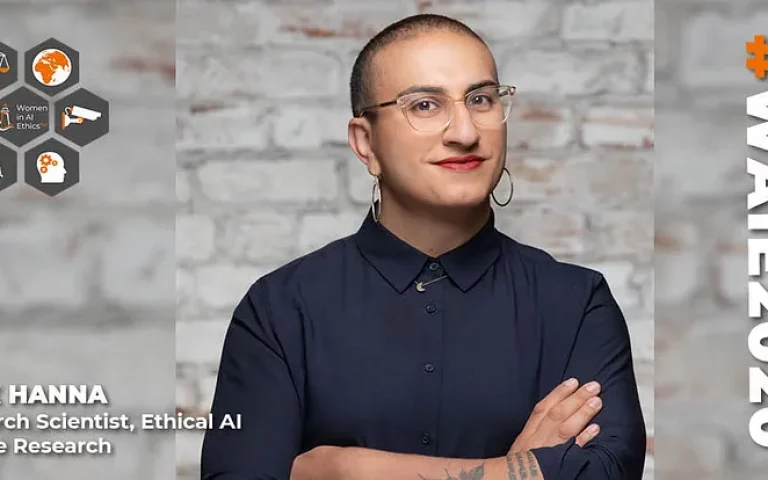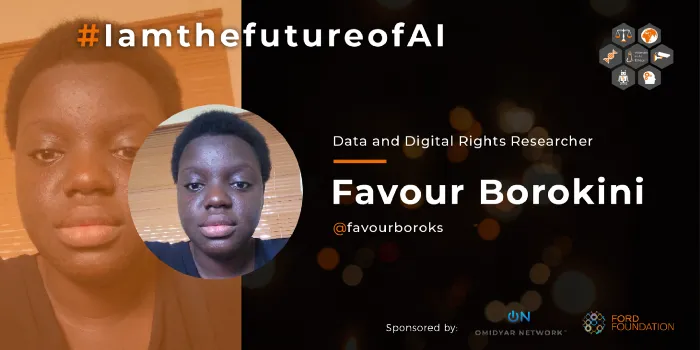
To support our vision of an inclusive AI tech future, Women in AI Ethics (WAIE) has launched the “I am the future of AI” campaign event on
March 8th, 2022 — International Women’s Day.
This campaign showcases multidisciplinary talent in this space by featuring career journeys and the work of women as well as non-binary folks from diverse backgrounds building the future of AI.
By raising awareness about the different pathways into AI and making it more accessible, we want to inspire participation from historically underrepresented groups so that together we can build a more equitable and ethical tech future.
Join us at Women in AI Ethics mid-year summit on June 8th as we discuss career pathways, funding, and role of philanthropy in building a more ethical and equitable tech future.
AI Ethics and Policy Researcher, Favour Borokini takes us through her career journey and shares what inspired her to join this space and how she landed her current role at Pollicy. She also talks about some of the most common barriers and challenges she tackles on a daily basis and how she deals with them as someone who comes from a non-technical background. She also shares her thoughts on diversity and the most practical tips to get started in this space especially if you’re someone who comes from a non-technical background.
You can listen to the podcast or read through their conversation below.
Favour Borokini: Hi, my name is Favour Borokini and I am an AI Ethics and Policy Researcher from Nigeria.
What really inspired you to join this space?
So I’ve always been interested in science fiction and technology. As a child I really enjoyed iRobots and I’d always thought of technology as a positive. You know, connected development and growth in Western countries through the prevalence of technology.
But in 2020, I began to read more about the impact of technology in women. I’d always been something of a women’s rights activist and advocate for quite some time. And I thought that eventually, I’d become a campaigner or somebody that works in that space with not for profits.
But in 2020, I began to read about image-based violence, image based-abuse, and revenge pornography because I witnessed on Twitter an incident of revenge pornography against the LAG in Nigeria and I was confused and shocked by some of the comments I’ve been seeing. So I guess you read about image-based abuse and I came across the work of Professor Clare McGlynn from Durham and the rest in the UK and I was shocked by the extent to which technology will be used to negatively impact the lives of women.
I’d always thought about technology as a good thing and it’s begun to slowly dawn on me that the offline forms of abuse were being replicated online. And shortly after that, I read about deep fake pornography as well and that’s caused some more confusion and shocked me and I learned that deep fake pornography was created through machine learning, and machine learning, being a subset of AI, I became very interested in artificial intelligence, which is also called as robotics.
How did you land your current role?
I signed up for the Lighthouse3 Internship Program and there I was paired with my amazing mentor Maria Axente and a group of other amazing mentees, Olga and Buse. And I learned so much about ethical challenges in that period. And I was stunned by the extent and the impact of the harm that’s already being grown, that has already been seen in more AI-ready times in countries where the use of AI was more widespread than it was in my own country. So this is how I got interested in AI.
So I would say that my career in AI began with that internship. After learning so much through our discussions and our meetings, I began to see some of the ways — the potential ways that AI could impact my country, continent, women around me, and I was very determined to figure out how I could contribute.
One of the first things that I noticed was that there was a death in African research that was critical in AI. I noticed that there was a lot of work being done, you know, deploying and integrating AI systems into Africa. There was a lot about how AI can be a path to bring forth industrial revolution, but there wasn’t enough being done to criticize what the potential impacts could be.
So my first role was as a research assistant with Tech Hive Advisory. Tech Hive Advisory is a Nigerian tech consulting firm and there we did a lot of research with regard to technology policy. I remember that the work was very grueling, but also gave me a lot of experience. One thing, I would say is that I wasn’t there very long, but it’s also extremely productive, especially for somebody who had lots of interests and a lot of passion but not a lot of experience. It was a very interesting way to gain a lot of experience in a very short time.
I remember that I worked on projects related to tracking, technology policy, technology regulation across West Africa. I’ve worked on projects related to telemedicine, data governance, data regulation and that gave me some confidence in my work. My boss Ridwan Oloyede and Deji Sarumi and also Nurudeen; they were all very supportive. They were so interested in what I was working on even though AI was not the primary purpose of Tech Hive’s work at that time. I could see that they were interested in exploring some of the topics that really spoke to me that really intrigued me.
And then I later moved on from Tech Hive and I came to work with my current organization, Pollicy. And I was so excited about the move to Pollicy because Pollicy has this very feminist-centered goal in terms of AI research. And some of the research that I had seen Pollicy put out, I had only previously seen being done by organizations like the UN, you know, large international NGOs so I was so excited to be part of this.
And I reached out to my current boss, and I told her that I wanted to contribute somehow to what they were doing and a couple of months later she asked if I was still interested and I’d welcome anything you send me. Of course, I had, because as I mentioned earlier, I’ve been working at Tech Hive Advisory so I had been working on a couple of projects. In that same period, I also worked with Ethical Intelligence. Ethical Intelligence is an artificial intelligence tech policy consultant firm so they’re definitely a team amongst the organizations that I have worked with. It’s a UK company and what EI basically does is that it provides ethical guidelines to people who are deploying artificial intelligence or some type of technology. They spoke with staff of Founders and CEOs and help them figure out who these technologies would impact, how deep would we need to get to reduce or eradicate some of the biases and some of the harms involved in products and services that Founders really can’t. I also had an opportunity to join The Future Society, another technology consulting firm and research organization, as an Affiliate. I had the opportunity to work with an amazing group of people in an amazing workplace working on artificial intelligence while working with so many African countries to develop their national AI strategies and on amazing projects that have the impact of AI on modern-day slavery and human trafficking. So that has been my career so far.
What kind of issues in AI do you tackle in your day-to-day work?
So one of the projects that I worked on at Pollicy related to artificial intelligence is definitely is our African Women in AI project. And I would say that this issue is in part that’s because as I mentioned earlier there’s just a death of research related to artificial intelligence ethics, the importance of artificial intelligence in Africa, it’s impact on social justice, and especially its impact on women so I was very excited to work on this project. How we’ve explored so many areas, so many wish to reach AI impacts women in Africa. We explored, you know, AI affects women in Africa because based on our race, based on our geographical location as Africans living in Africa or people of African descent, even when you do not live on the continent.
And then there’s also the fact that you are human and there are all sorts of biases, forms of discrimination. based on historical, traditional norms and also just the impacts of colonialism which have shaped how women have been treated. And if AI systems are being developed and integrated by governments across Africa, who will be making decisions regarding the lives of Africa — the lives of women, I beg your pardon on these subjects. We need to be able to identify and point out why that is problematic.
So, you know, in our latest report for instance we explored some of the issues. For instance, migration. A lot of African women face problems related to, you know, this in so many countries in the west, for instance, are deploying these algorithms that determine if certain people from certain countries should be given visas or not. And there’s also the deployment of facial recognition systems at airports or borders that could, you know, negatively impact your traveling experience as well. And then we also explored, for instance, the use of AI, in financial apps or Lend Techs, that require so much data, so much invasive data in order to determine whether women should be given loans or not. And this is particularly impactful to women because women are less likely than men to own bank accounts. So these apps put themselves forward as the new solution as a way through which women can get those loans. And women can get the resources that are required to set up businesses, to buy land, to engage in whatever it is they want to engage in. But the amount of data that’s being required is extremely extraneous in some cases, and often constitutes a breach to the human rights to dignity, for instance, and privacy. Also. So many African countries — and not only African countries — global leaders this issue of surveillance on the bodies of women. We’ve read about governments being interested in employing systems that would be able to identify if women were unhappy based on their facial expressions. And how women activists in North Africa for instance, are being policed due to their relationships with certain persons of interest to African governments or just their work as activists or as journalists.
And the installation of surveillance systems or devices that surveil their personal/private conversations and private lives. It’s especially important to note that African women face bias on multiple intersections. So ethnicity, based on sex, based on sexual orientation, gender identity, and also age, for instance. Some of these issues that is caused is underemployed in some of the research that has been conducted today.
So we also spoke to a number of African women who work in AI today. We’d like to get an idea of what they feel the barriers are to participate in AI and some of the recommendations. Generally, African women are willing to participate in this space, they just need more support from the regular stakeholders.
Coming from a non-traditional or non-technical background, what barriers did you encounter and how did you overcome them?
So as someone with a non-technical background, I definitely feel limited in my work in AI. I sometimes feel that I would be allowed into certain spaces if I had a computer science background or a computer engineering background, or maybe even a statistics background. I feel that there is a lot I could contribute if I only had, you know, such a technical background to at least give me a foot in the door.
I say that when I come across a lot of rules in the ethical AI space. I think that there’s not enough being done on really integrating people from diverse backgrounds into this space. And I think that’s a shame because it’s not enough for computer sciences or computer engineers that are developing AI or teams or changing some of these systems to undergo three-week boot camps or whatever training in ethics or bias. It can never make up for, in my opinion, having a four or five-year degree at university in social sciences or in the humanities, for instance. So I do feel that despite the fact that there is a lot I think I could contribute, I am unable to do so. I think that also as an African woman in this space, it’s a shame that beyond certain stereotypes, beyond certain troops, there’s a lot regarding our backgrounds and our own lived experiences, especially in contemporary Africa, that I’ve been disregarded or not factored into the equation in this space. And I’ve been able to welcome some of these backgrounds, where I’ve been speaking frequently with people with more experience than me. I have so many mentors, so many people that I reach out to occasionally whenever I’m struggling. I let them know that I’ve hit a brick wall in a particular angle and I ask for advice. I ask them how they have tackled some of these issues and it has helped me a lot, has given me so understanding more patience in tackling this issue, definitely.
Why is more diversity — gender, race, orientation, socio-economic background, other — in AI ethics space important? (Share specific benefits that more diversity brings to AI)
I think diversity is extremely important in AI because the issue of AI itself is such a homogenous thing. It’s a space that was created — crafted by such a nondiverse group of people who simply impact all around us today. We see how AI algorithms are affecting people, women, minorities in countries where the use of AI is more widespread and more evident to society.
And I personally see this as an opportunity for Africa and for many regions and places in the global south, which have not integrated AI systems to the extent that we are witnessing in the global north. It’s an important opportunity. We’ll also learn from lessons and begin to think about what our weak points are, what our soft points are. Some of the ways through which AI could worsen inequality and social justice and begins to think about how we could mitigate and eradicate some of these risks but this is not a thing that can happen if we do not involve people with experience working in these spaces. If we do not involve lawyers. If we do not involve civil society activists. If we do not involve doctors, healthcare workers, community workers. If we do not involve people in the issue of campaigning for social justice issues. If we do not speak with the average person in the markets, the average person on the streets, we will be unable to identify what these risks are.
And then you’ll just be building products from an ivory tower totally removed from the people for whom you are building these products.
So the rest is important because it brings to perspective the opinions, the needs of people who are the most vulnerable, who are misrepresented, and helps you to create products that benefit these people, that target these people, and which have their inputs, which has their support as well.
What is your advice to those from non-traditional backgrounds who want to do meaningful work in this space on how to overcome barriers like tech bro culture, lack of ethical funding/opportunities, etc.?
So I would say that my message to people from nontraditional backgrounds and underrepresented communities on how to overcome some of the barriers out there is definitely to build a community, find like-minded people, find people who are going through the same struggles that you are.
Find people who have gone through the same struggles that you are going through. So, that’s my advice. Find somebody who can empathize with you. Sometimes you don’t even want somebody to reach out to you to advise you. Sometimes you know what the advice is. It’s to not give up, to do your best and to remain passionate about these issues. But, sometimes you just want somebody to rant with. Somebody to give you listening ears.
So it’s definitely important to have a community of people like that. And I would say to definitely shoot your shots always as much as you can, but it’s important to prioritize your mental wellbeing as well. You don’t want to get burnt out. Trust me, I’ve been there. You don’t want to be in that spot but I mean, shoot your shots. Reach out to as many people as you can reach out to and keep pushing. Remain in touch with people. Have a list of people that you regularly reach out to. Have a notebook wherein you write some of the more profound pieces of advice that you’ve got from your mentors, from your friends, and keep reminding yourself about your goals, keep refining your goals.
You might find what your area of interest is or maybe it narrows, so you need to be willing to let go of some things that’s no longer help or aid your career and your interest. And just believe in yourself, prioritize your mental health. And I believe very much in Y.O.L.O — You Only Live Once.
So just do your best to put yourself first while doing all you can to achieve your goals.
You were listening to an AI ethics career journey from the I AM THE FUTURE OF AI campaign series.
Favour Borokini is in Nigeria and remotely working as Pollicy’s Digital Rights Researcher where she arches a number of knotty topics related to technology-facilitated violence against women and the general impact of subsisting and emerging technologies on social justice and equality. She also works as a Content Writer with Ethical Intelligence, an AI Ethics consulting firm with various research groups on topics related to data protection regulation, healthcare delivery, and is currently an Affiliate with The Future Society.
